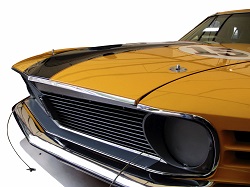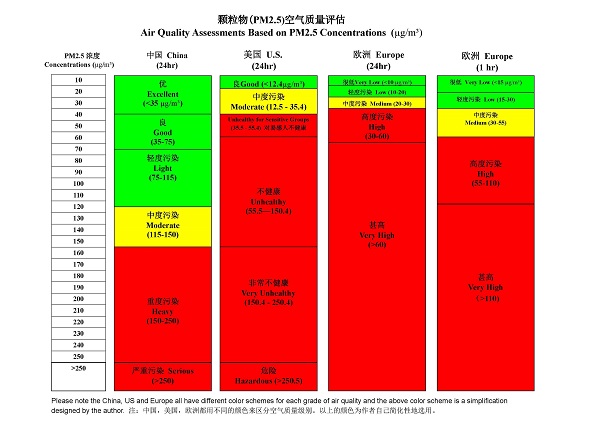 Today auto dealerships find themselves in a situation precisely analogous to the one American auto manufacturers faced in the 1970s, and successful owners and managers will learn from the past to discern what needs to change and what doesn’t.
Today auto dealerships find themselves in a situation precisely analogous to the one American auto manufacturers faced in the 1970s, and successful owners and managers will learn from the past to discern what needs to change and what doesn’t.
Remember those awesome muscle cars from that decade? Everybody wanted to turn over a 454 cubic inch V8 to enjoy the throaty roar and peel-out acceleration, and no one thought about the gasoline the car was gulping or the pollution it was producing.
Déjà vu All Over Again
No one, at least, until the Clean Air Act crashed the party. Enacted in 1970 with important supplements in 1972, the Act addressed run-away vehicular air pollution that regularly reached toxic levels in several metropolitan areas at that time.
Faced with compliance, the U.S. automobile industry reacted hysterically. General Motors predicted a “complete stoppage of the production line,” and Lee Iacocca assured Congress that it would "cause Ford to shut down," cut gross national product by $17 billion, and raise unemployment by 800,000, adding that “[the Act] could lead to huge price increases for cars even if production were not stopped, do irreparable damage to the American economy—and still lead to only small improvements in the quality of the air.”
Not exactly inspiring corporate leadership. But since the Act was signed into law by President Nixon – a pro-business Republican from Whittier, California, a town regularly choked with Los Angeles-region car exhaust – and since parents nationwide wanted their children to breathe clean air, the law stood.
Detroit, to its great moral and financial detriment, responded petulantly. It failed to equate the Act with the will of their market, and instead saw it as government oppression. So the muscle cars kept pouring out of their factories, and In order to comply with the letter of the law while blatantly ignoring its intent, they begrudgingly produced a few poorly-made, tiny, high MPG cars that no one remembers (except perhaps the Ford Pinto, which was not only poorly made and tiny but would also explode when rear-ended).
It’s no coincidence that Chrysler needed Congressional help to avoid bankruptcy for the first time in 1979, completely out of touch with the public as it was, and it’s no surprise that since then the American taxpayer has bailed out nearly all of the major automobile manufacturers, often more than once. While the ultimate causes will be debated for decades, there can be no question that the automakers failure to change with the times, much less lead the market, contributed to their troubles.
Adapt or Die
 Today dealerships are in the exact same position. Some will dig in their heels and refuse to adapt to changes in technology and consumer expectations. Others will lead.
Today dealerships are in the exact same position. Some will dig in their heels and refuse to adapt to changes in technology and consumer expectations. Others will lead.
Sadly in this story we need to look overseas to find leadership. Throughout the decades following the Act the Japanese not only produced high-quality cars with great gas mileage, they also famously adapted technology pioneered in the U.S. to build alternative powertrain vehicles, releasing the first hybrid in 1997. Toyota sold their Prius at a loss in order to develop a market segment that today is increasing at more than 70% a year.
Because of their uncooperative and retrogressive response, Detroit spent nearly two decades in catch-up mode, repeatedly turning to Congress for bailouts and protectionism.
Meanwhile the Act caused air pollution to decline 68% and technological innovations spurred by the act caused emissions of greenhouse gases per driver of newly purchased vehicles to decrease 22% since 2007 alone. Overall the Act vastly improved metropolitan quality of life and perhaps saved millions from respiratory ailments or early death.
And through it all, the country’s GDP more than doubled, demonstrating that the U.S. automakers’ hysteria was incorrect on all counts.
Failure to lead can be catastrophic – especially for dealership owners and managers, who will probably not be bailed out by Congress should they fail to adapt.
Lessons from China
Had the Act been defeated and had muscle cars become the norm, we need only look at this photo of a street in Beijing to see what would have happened to us.

Should we consider the Clean Air Act oppression? Or is oppression better exemplified by the chart below? In the chart we see that rather than address air quality the Chinese government simply dictates that unhealthy levels of pollution are officially “Light” or “Moderate” so citizens have no legal basis for complaint and so those Beijing bicyclists must consider the air they are breathing only “lightly” or “moderately” polluted.
U.S. citizens wouldn’t put up with that for fifteen minutes, and since the challenges facing dealerships today are similar to those faced by Detroit in the 1970s, perhaps now is the time to learn some lessons from this history.
 Three Major Threats to Dealerships
Three Major Threats to Dealerships
Dealerships today face three major existential challenges, and if the auto industry’s response to the Clean Air Act teaches us anything, it is that dealerships who respond to shifting markets by demonstrating leadership will be the biggest winners:
- Demand for alternative power trains will rise inexorably. 76% of Millennials consider themselves more environmentally concerned than the generation that created the Clean Air Act. People want to protect the environment and the technology for making that happen without compromising lifestyle exists, so that’s where the market is moving. Toyota and General Motors have placed their bets on hydrogen fuel cells while Nissan, BMW, Mercedes and of course Tesla have placed their bets on batteries; either way, that’s the future.
 Service and maintenance will become less and less of your profit over time because today’s consumer expects that long-term maintenance ought to be included in the price they pay for the vehicle. New cars – particularly those from South Korea – now come with massive warranties included, and warranting used vehicles has become such a huge business some national aggregators taking bets on large numbers of vehicles are drawing the ire and regulatory attention of the government. Tesla, as usual, sets the bar about as high as it could be set. Since a Tesla sedan has only 25 moving parts, including the steering and suspension systems, it’s no wonder that its charismatic CEO, Elon Musk, doesn’t even write service into his business plan, saying “I think it’s terrible to make a profit on service.”
Service and maintenance will become less and less of your profit over time because today’s consumer expects that long-term maintenance ought to be included in the price they pay for the vehicle. New cars – particularly those from South Korea – now come with massive warranties included, and warranting used vehicles has become such a huge business some national aggregators taking bets on large numbers of vehicles are drawing the ire and regulatory attention of the government. Tesla, as usual, sets the bar about as high as it could be set. Since a Tesla sedan has only 25 moving parts, including the steering and suspension systems, it’s no wonder that its charismatic CEO, Elon Musk, doesn’t even write service into his business plan, saying “I think it’s terrible to make a profit on service.”- Demand for factory-direct sales will increase proportionate to dealerships’ resistance to it. While the auto industry chaffed at the Clean Air Act’s regulations, auto dealerships rely upon government regulations to maintain their business model, a situation that many consumers find suspicious. Under the influence of the auto dealership lobby, New Jersey, Maryland, Virginia and Texas have all banned direct sales of Tesla’s vehicles, causing citizens to wonder why and perhaps setting up the dealership model for a major backlash – which may come, ironically, just as Tesla and others decide they need dealerships after all.
Taken together it is easy for a dealership owner or manager to respond the way Detroit did to the Clean Air Act and to resist change at any cost.
Leading is more difficult but ultimately far more profitable and satisfying – especially since this transition will play out over a long period of time.
A Repair to Last a Decade
Dealerships confident in the value they provide to their community will focus on providing that value. Today, that means guiding consumers from where they are – driving vehicles with an average age greater than ever before – to where they want to be, which is driving something ecologically correct that has a lifetime warranty.
Consumers who know that your mission aligns with theirs are more likely to trust your guidance and to enter into a long-term relationship with you. For perhaps the majority of buyers their personal path will entail a series of vehicles and loans and scheduled maintenance, all of which they can get only from you.
Fundamentals like that don’t change, so approaching each customer interaction as part of your long-term mission to lead your community into a healthy and environmentally responsible future may be the most robust business development you can do.
So be sure that when it comes to payment – the final step that solidifies your relationship – you have every tool you need at your disposal to close the sale smoothly and in your customer’s best interest. We have a suite of services designed specifically for auto dealers and we provide the highest check approval ratios in the industry, helping you establish yourself as the trusted leader your customer seeks. Learn more here.



